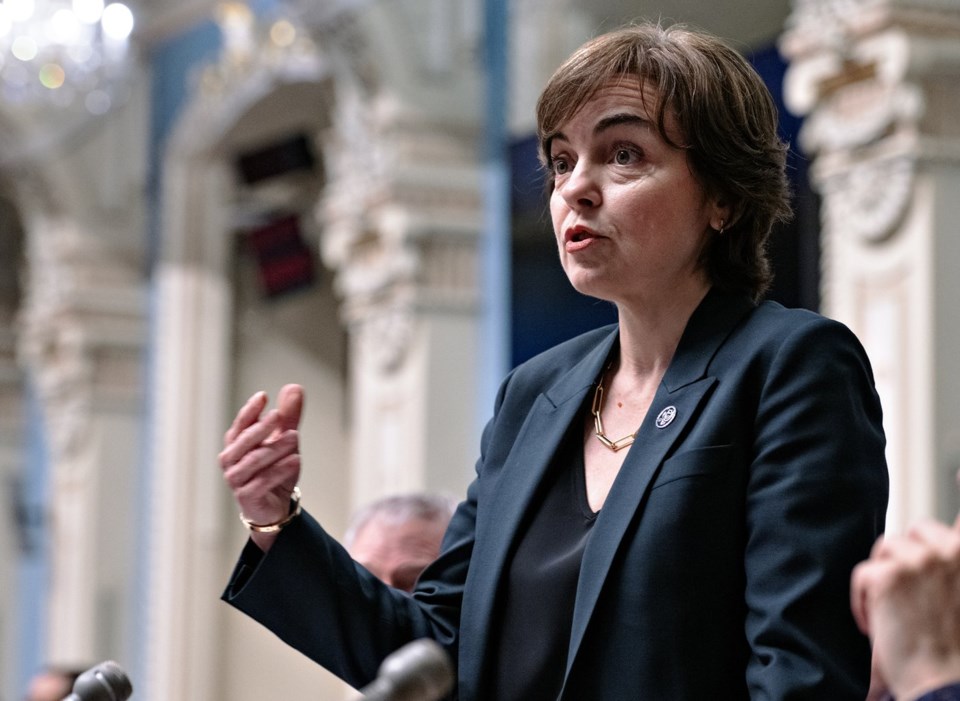MONTREAL — A woman who has been waiting for two years to sponsor her Guatemalan husband to come to Quebec says the province is acting in bad faith by slashing the number of family reunification applications it will accept.
Laurianne Lachapelle of Quebec Réunifié says the decision will cause even more stress and delays for Quebec families who already wait far longer than other Canadians to bring in relatives.
"This decision has to be cancelled as soon as possible, because it doesn't make any sense at all with the current process, and I can't even put into words what it will cost for families," she said in a phone interview Tuesday. "They're going to be shocked. They're going to be depressed."
Quebec announced last week it will process a maximum of 13,000 family reunification applications over the next two years, after approving more than 16,500 in 2022 and more than 10,000 in the first six months of 2023.
A spokesman for Immigration Minister Christine Fréchette said the government wants to ensure the number of approved files doesn't exceed the province's immigration cap.
After reaching the 13,000-application limit, "the minister will no longer receive requests, with the exception of certain specific cases," the department wrote in an email. Exceptions include children who are dependants, the government said last week.
The federal and Quebec governments clashed earlier this year over the backlog of family reunification applications, for which they share responsibility. While Ottawa has final approval, applicants who want to bring spouses or parents to Quebec must first obtain a selection certificate from the province before they can be accepted.
According to Immigration Canada's website, it takes 34 months to process a spousal visa for an applicant in Quebec, compared to 10 months in the rest of Canada. For parents and grandparents, it's 48 months in Quebec and 24 months in other provinces.
Earlier this year, federal Immigration Minister Marc Miller promised to accelerate processing all the pending files for which a certificate has been issued, even if meant surpassing Quebec's desired annual cap of just over 10,000 sponsored family members per year.
Fréchette's office cited Miller's promise as one of its reasons for limiting how many certificates it issues, "in order to avoid exceeding the admission thresholds planned by Quebec."
A spokesperson for the federal department said it is dedicated to bringing families together in Quebec more quickly and would collaborate with the province to do so.
While Lachapelle's husband already has a selection certificate, and therefore won't be affected by the latest change, she worries about the impact on other families
She says she's worried the cuts will result in the federal government deeming applications incomplete and closing them, forcing people to start over again and adding years to their wait.
Based on her own experience, she says that being separated from a spouse is "one of the most painful experiences you can experience," especially since most have already been living long-distance before they apply.
She said the long waits mean that some women have to give birth and raise their children alone, and others have to delay starting a family altogether, affecting their chances of being able to get pregnant. She said she had an abortion because her husband couldn't come join her.
"When I say family, it's not your cousin — it's your husband, your wife or your kids," she said. "So imagine being separated from them and not being able to just have a normal life together like any other couple or family and living for many, many years apart."
The provincial government has justified its immigration cap by citing the need to protect the French language and to not accept more people than it can properly house and integrate.
But Lachapelle rejects that argument, saying that sponsored family members will learn the language by default because most will be moving into French-speaking households.
Instead of protecting the language, she said the government's approach is pushing some French speakers to leave the province.
"We are all Quebecers, we are francophone and we live in Quebec because we are born here or chose this province because we speak French," she said. "But the government prohibits us from having our families, so the most logical decision is to go to Ontario or New Brunswick or a province that will not have this cap."
Lachapelle said she previously debated leaving for another province, but has decided instead to stay and try to fight for a fairer process with the help of the province's association of immigration lawyers.
This report by The Canadian Press was first published July 2, 2024.
Morgan Lowrie, The Canadian Press



